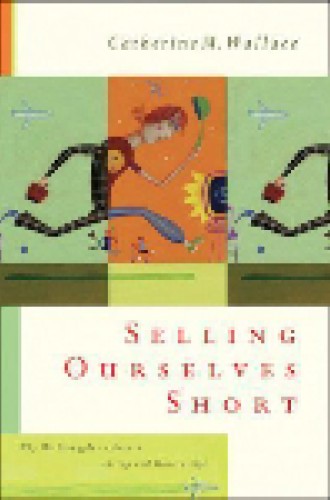Selling Ourselves Short
When I retreat to the silence, solitude, prayer and worship of a monastery, I frequently wrestle with a familiar question: How did I—yet again—let my life get so out of balance, busy, hectic, distracted and frenetic?
Overwork and stress are perennial themes in our society, and ironically our technological lifestyle makes us even busier, as so-called labor-saving devices increase our sense of burden and obligation. This is not a hunch supported only by anecdotes or a nostalgically wistful longing for more leisurely former days. Statistics show that North Americans are working more than ever.
Such problems get surprisingly little attention even though they are among the most pressing spiritual challenges of our day. I suspect that mounting interest in “spirituality” is actually part of a desperate attempt to cope with profoundly disorienting lifestyles. But I worry that spirituality is used as a means to help people cope with what shouldn’t be tolerated.
When people read Catherine Wallace’s subtitle, they probably respond with sighs of recognition. Wallace wrote the book for those tired of “feeling haunted and guilty about too many demands, too little time, and not much that counts as genuine satisfaction or true peace of mind.” She is just as perplexed and frustrated as the rest of us about how to do better, but she maps out the parameters of the challenges and encourages us to engage these matters vigorously.
I appreciate this book because it takes the problems seriously. That is a gift in itself. More than that, Wallace examines the roots of our harried condition, helping us understand it through the insights of various disciplines and analyses: history, theology, sociology, feminism. The ways we organize our society have led to the marginalization of such primary virtues as compassion, commitment and fidelity, making our dilemmas all the more pressing and painful. If we understand what we face, however, we can reject the “spiritual poverty” of “cultural pressures unrelentingly focused upon free-market competition and consumption, as if the meaning of life is Compete, Consume, and Die.” That, at least, is Wallace’s hope.
The pressure to work longer hours, prioritize job over family, and increase our consumption, Wallace convincingly argues, has devastating consequences for family life and for society. She is particularly concerned about the ever-increasing tensions between professional demands and personal and family responsibilities because such conflicts invariably promote professional obligations over family duties and thus erode the common good. She constructs her argument on facts we know all too well: the divorce rate is too high, children are troubled, and we are assaulting our environment.
Wallace matter-of-factly insists that living the good life is an ongoing struggle and that no single formula will perpetually enable us to nicely balance earning a living with having a life. Yet she convincingly marshals the Christian virtues of altruism and compassion as a needed counterwitness to relativism, consumerism, anxiety and self-centeredness. We encounter more than the passive acquiescence of a pessimist when we read Wallace’s invitation to “consider how much difference it would make both in popular culture and in your own daily life if we saw one another as motivated not by the almighty dollar but by the human need to live responsible lives in service to others.”
Selling Ourselves Short did not neatly resolve the imbalance of my life, but I did come away with deepened resolve and clearer understanding. With the wisdom of Catherine Wallace, readers will be equipped to more firmly and resolutely strive for the truly good life and to seek out companions in this crucial endeavor.





